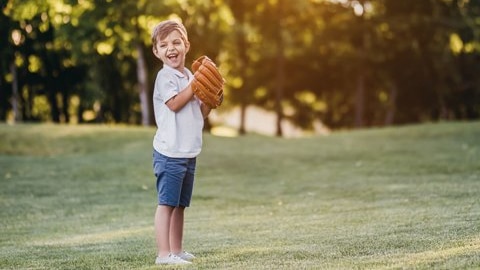
Whether you are dialed in on a football scrimmage or soccer practice, it can be hard to simultaneously focus on what you love while taking proper precautions for your oral health. Thankfully, mouthguards can help with those precautions. They prevent damage from grinding and clenching, but even more importantly, help your teeth stay safe against impacts.
We know that adding this extra step to your workout routine can be inconvenient, so our goal is to guide you through this new transition. We’ve listed below some things to keep in mind while you get used to using a mouth guard during sports. Feel free to reach out to our dental team if you have any further questions.
When To Wear Mouth Guards
Mouth guards are essential to use when participating in situations where your teeth tend to get damaged. Dr. DeStefano and our dental team will instruct you on proper precautions. Situations where we often recommend mouth guards include:
- High-Contact Sports: Activities such as football, soccer, or wrestling should use mouth guards as teeth can be vulnerable to cracks and other dental trauma.
- Night Use: Teeth grinding mainly happens overnight. Mouth guards can ease significant tooth strain during this period.
- High-Risk Activities: Any high-risk activities, such as skateboarding, should be avoided without first using a mouthguard to keep your teeth safe.
- Teeth Clenching: Another bad habit similar to bruxism is teeth clenching. Mouth guards are very helpful for this habit.
Be sure to only use the mouth guard as advised by the dentist. Appropriate use will help the mouth guard stay functional for as long as possible.
Protecting Your Mouth Guard
Since you now know about when to use a mouthguard, let’s talk further about how to use your mouthguard while you are playing sports.
Proper Fit
Be sure that your mouthguard is custom-fitted or moldable to your teeth. A well-fit mouthguard is less likely to come out while you play, reducing the risk of it being stepped on, dropped, or damaged.
Clean Regularly
Thoroughly clean your mouthguard after each session. Food, bacteria, and debris can easily accumulate otherwise, leading to a less hygienic and effective mouth guard. A tooth brush or mouth guard cleaner works great after each use. Cleaning your mouthguard also prevents cracks and deterioration, which helps the tool last even longer.
Don’t Chew The Mouth Guard
Yes, we know that a lot of other athletes do it. However, resist the urge to chew on the mouthguard when possible. Chewing can weaken the material, create tears, and limit its protective structure. If you find yourself chewing on the material, you may find that you need a better-fitted mouth guard. Chewing on the guard could also be a sign of bruxism.
Safe Storage
Successful patients usually have a case where they place the mouth guard in while not in use. We highly recommend using the case only rather than another service, where it can be accidentally thrown away or damaged. A protective case can also prevent the mouth guard from warping while it is under direct sunlight.
The Importance of Specialized Dentistry
A crucial part of mouth guard use is to choose a reputable dental team that supplies oral protection. This step reduces the number of mouth guards you need to buy and the risk of it becoming damaged right when you need it.
Get Started with Mouth Guards Near Pittford, NY
Bridge Creek Dental is happy to offer mouth guards and orthotics that assist in bruxism and protection against tooth damage. If you have any questions about how to keep yourself healthy during sports or regular day-to-day life, don’t hesitate to call our office for more information.






